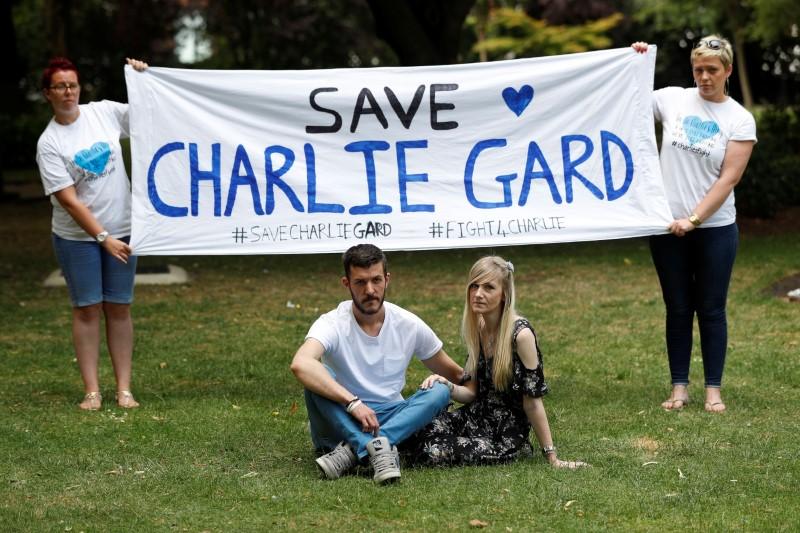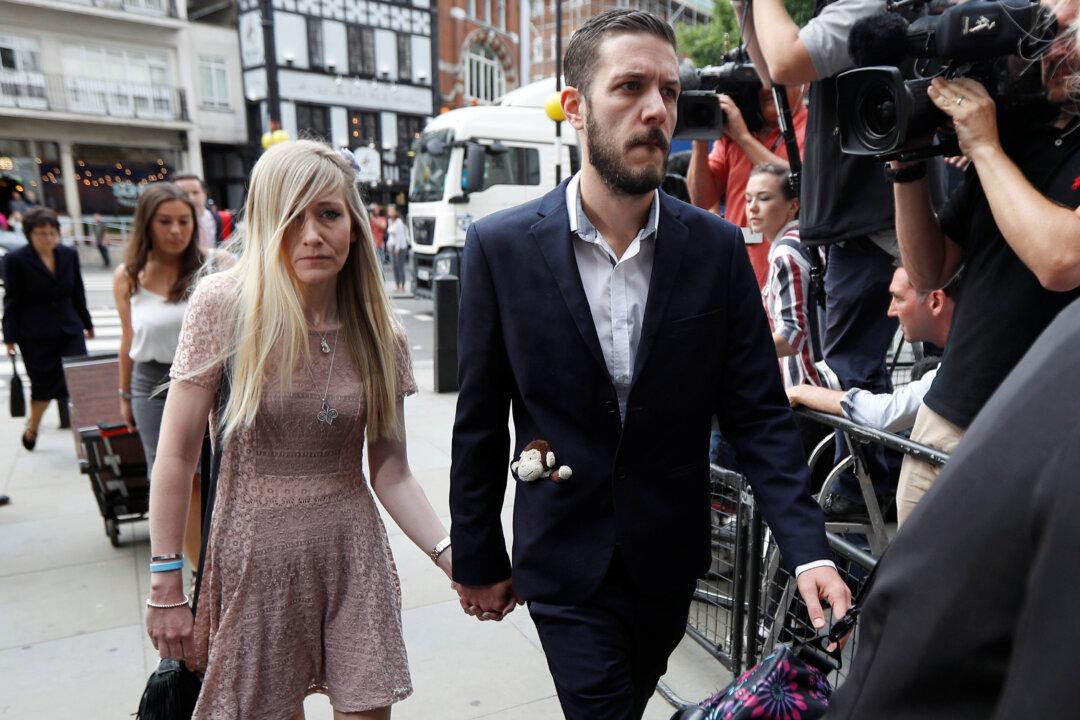There is a 10 percent chance to improve 11-month-old Charlie Gard’s condition using an experimental therapy said an American doctor.
However, doctors at Great Ormond Street Hospital (GOSH), where Charlie is currently on life support, said the baby’s rare genetic disorder and server brain damage was “irreversible, irreparable.”
Despite this, a British judge ruled Friday for Dr. Michio Hirano, a neurologist at New York’s Columbia University Medical Center, to examine Charlie in London next week. Hirano is developing an experimental therapy that has already been used on at least one American patient with a similar but less severe mitochondrial disease. He specializes in myopathies and other neuromuscular diseases.

Connie Yates and Chris Gard, pose for photographers as supporters hold a banner, before delivering a petition to Great Ormond Street Hospital, in central London, Britain July 9, 2017. REUTERS/Peter Nicholls




